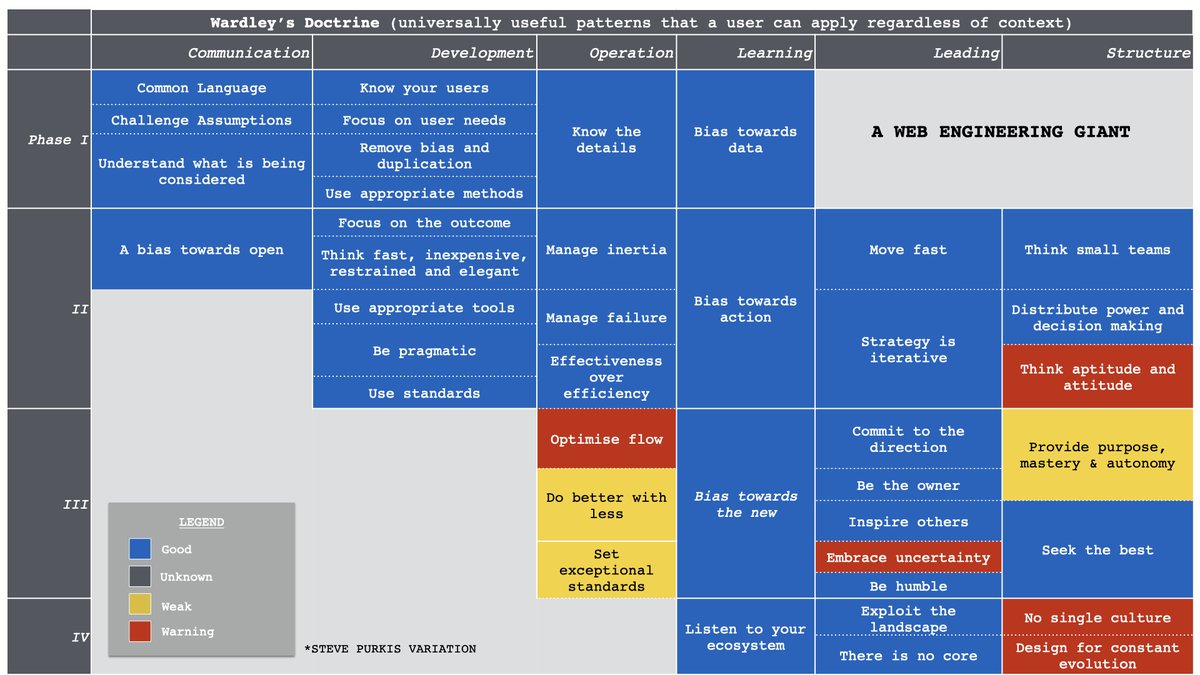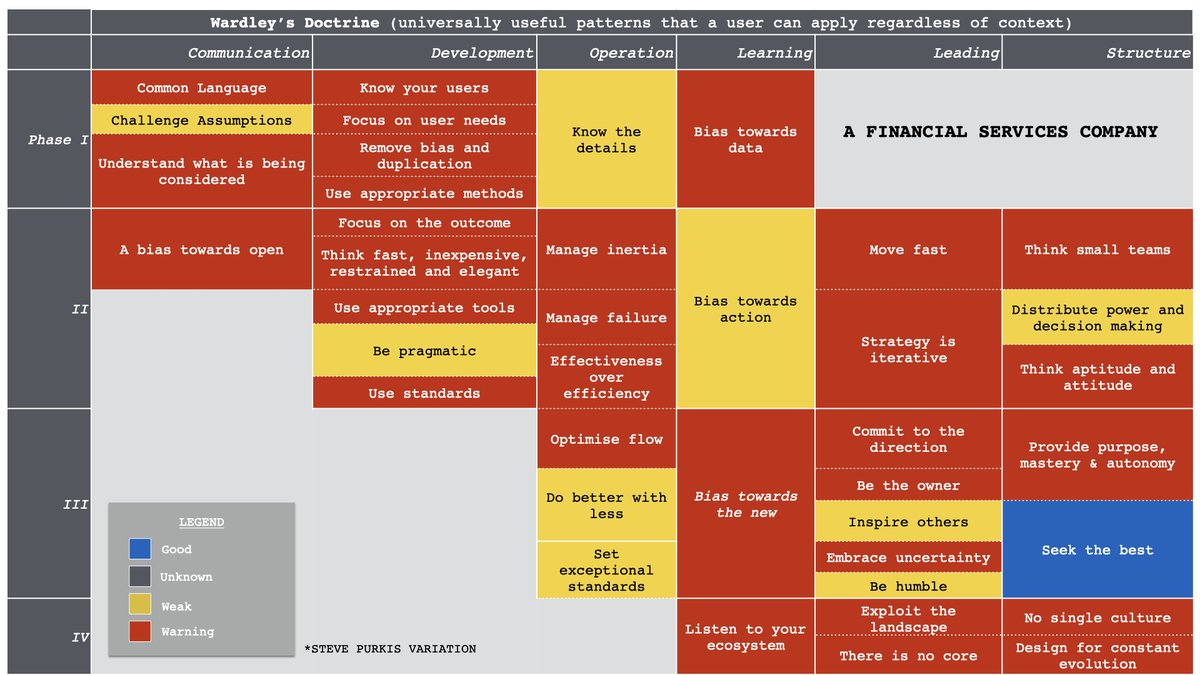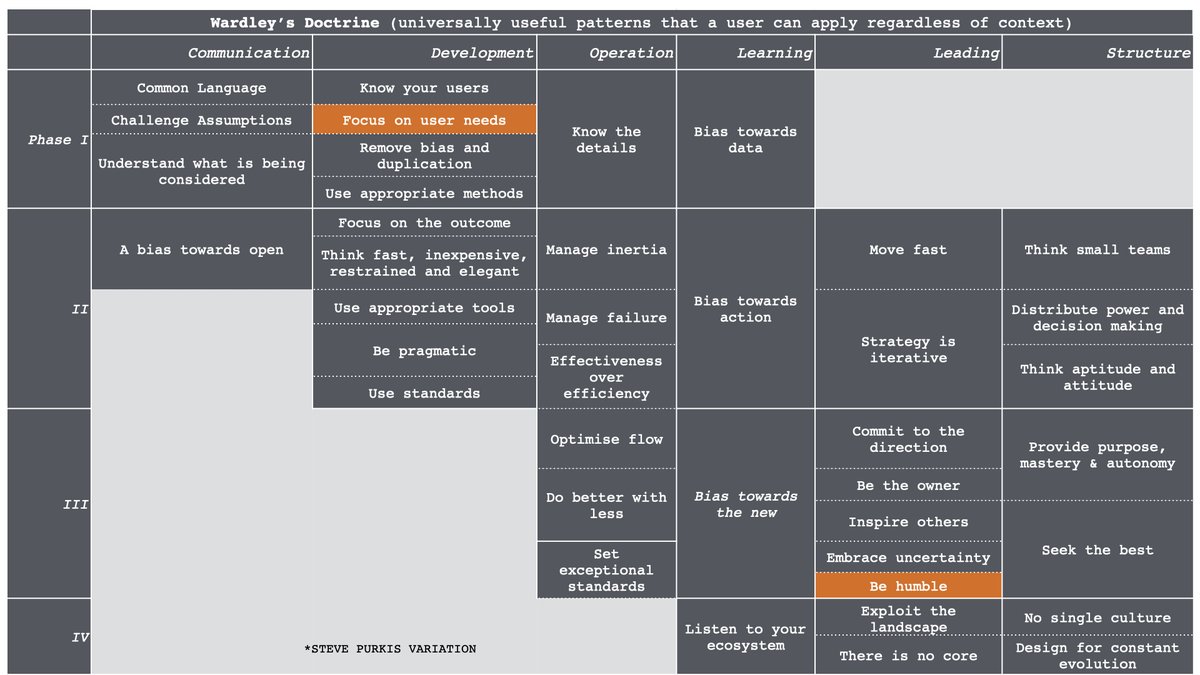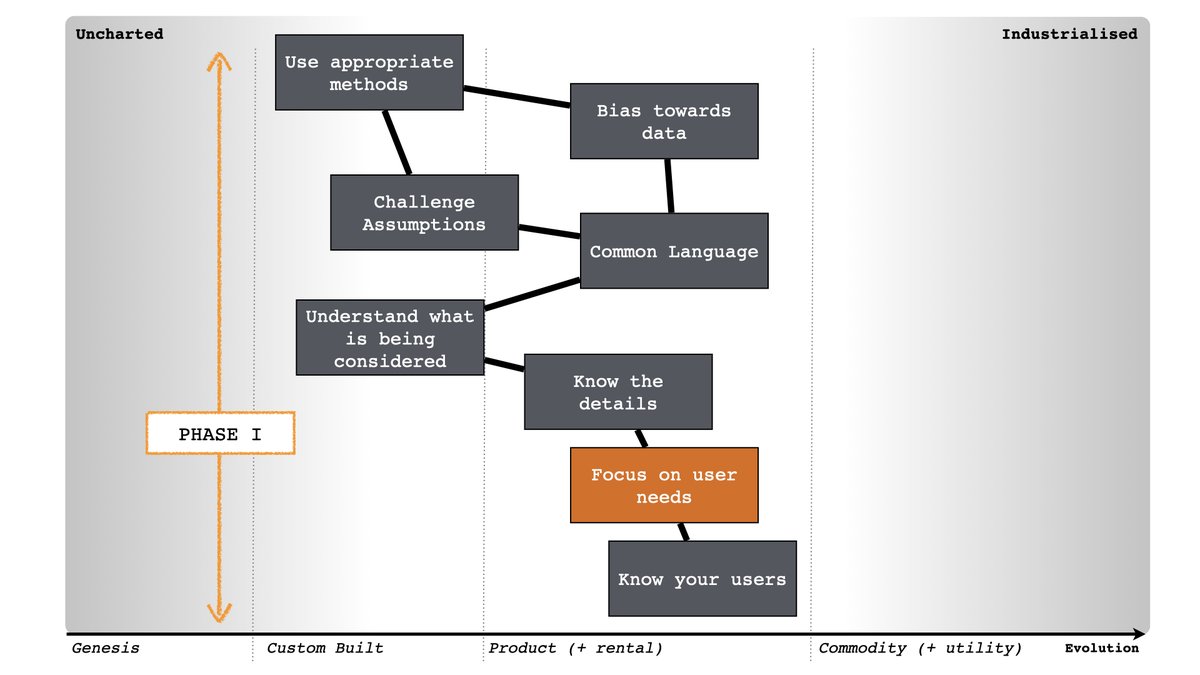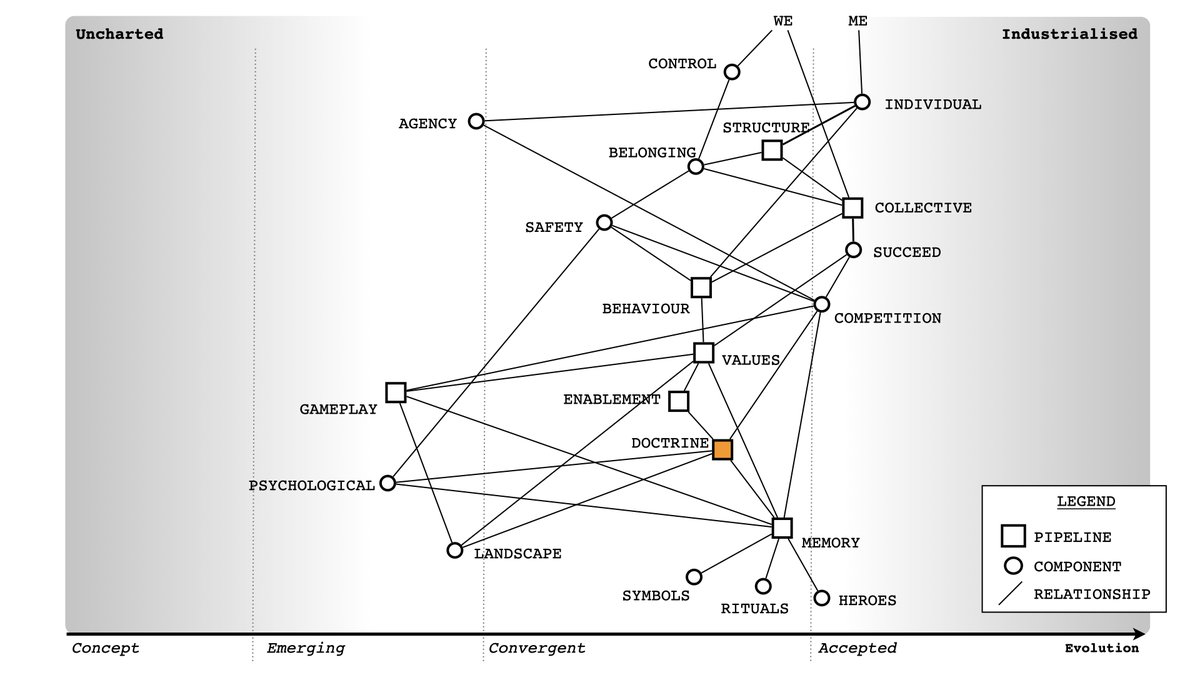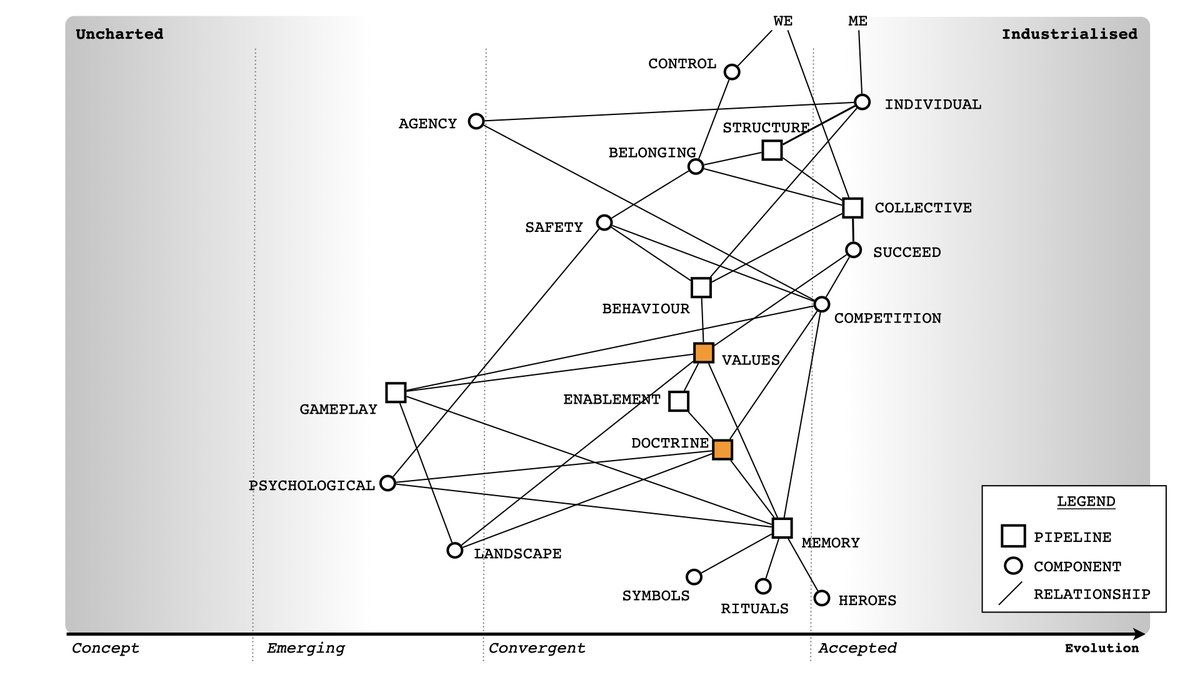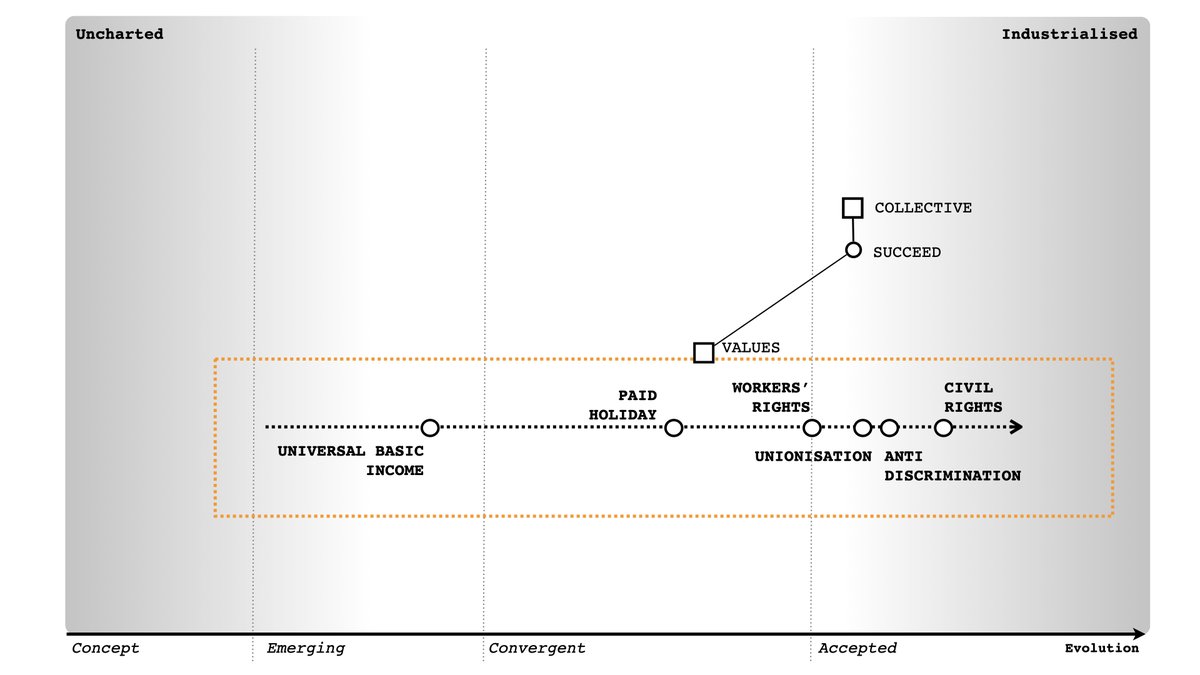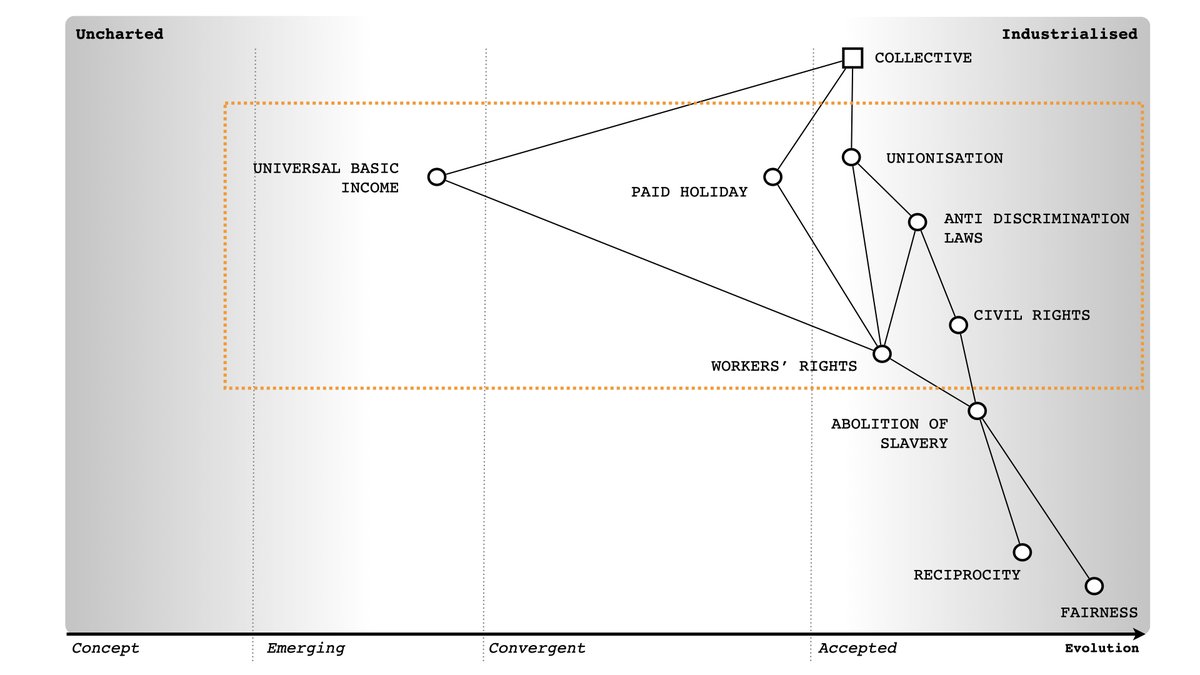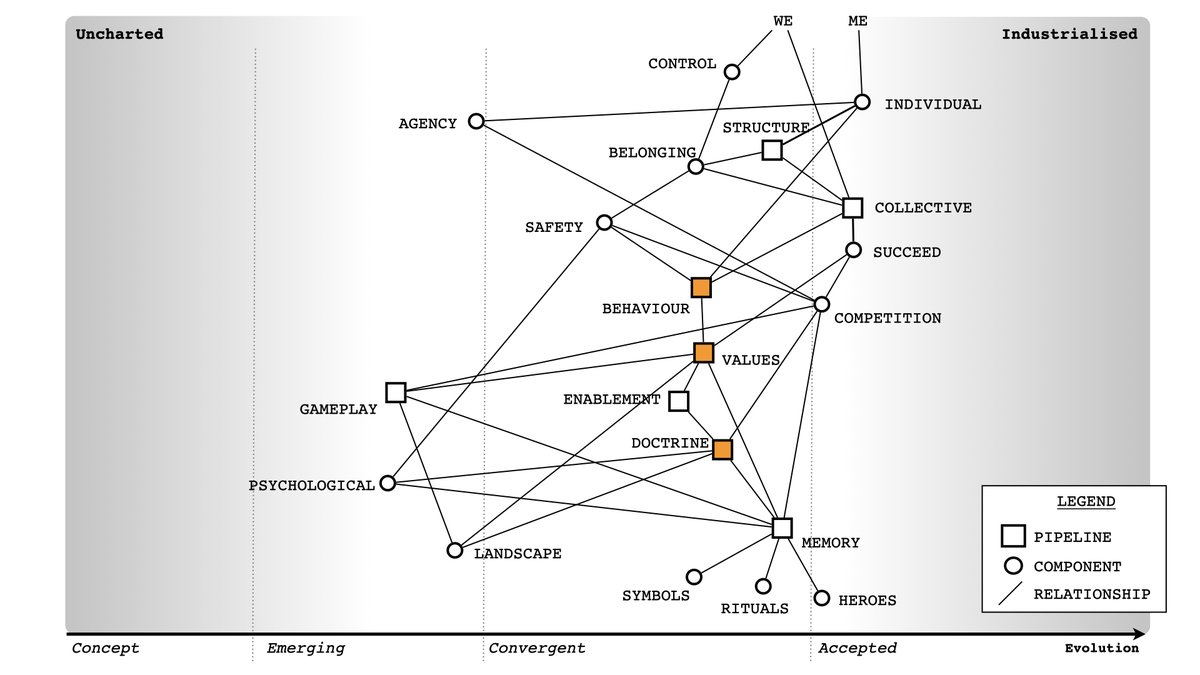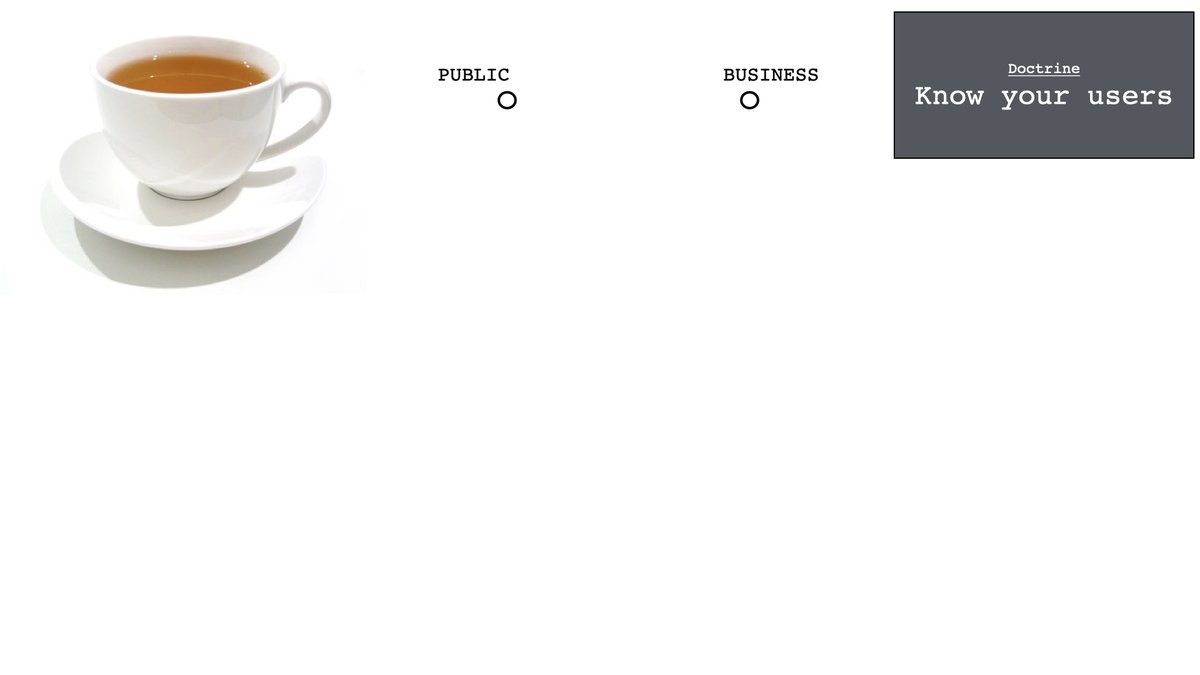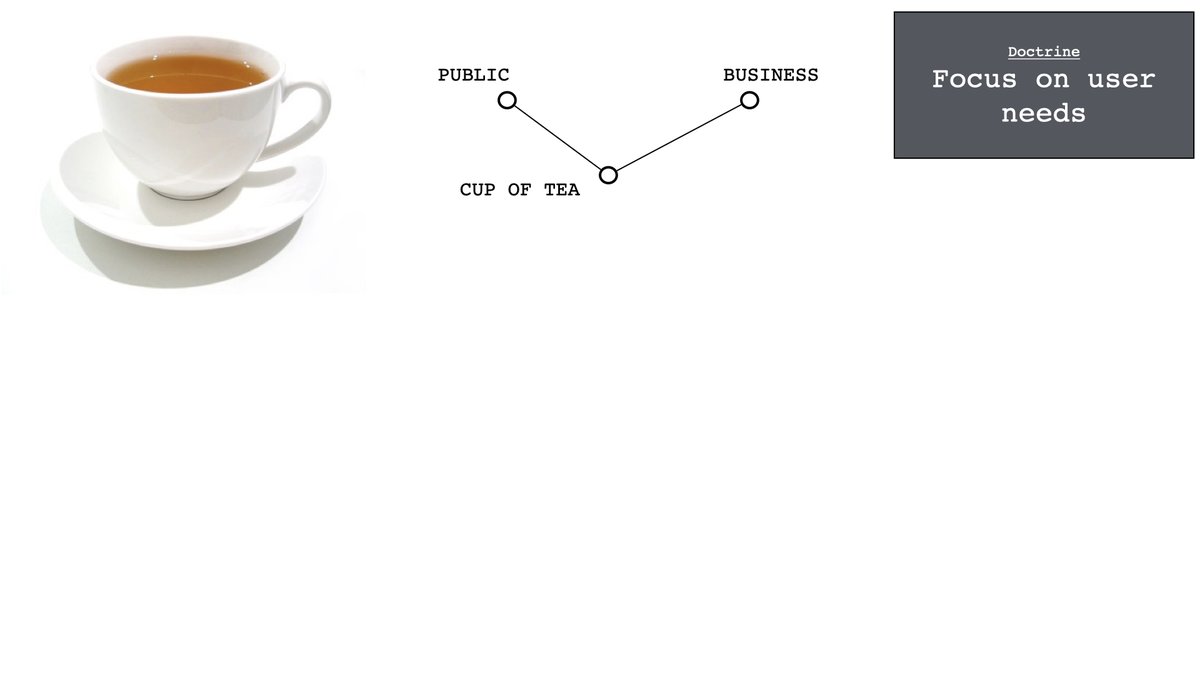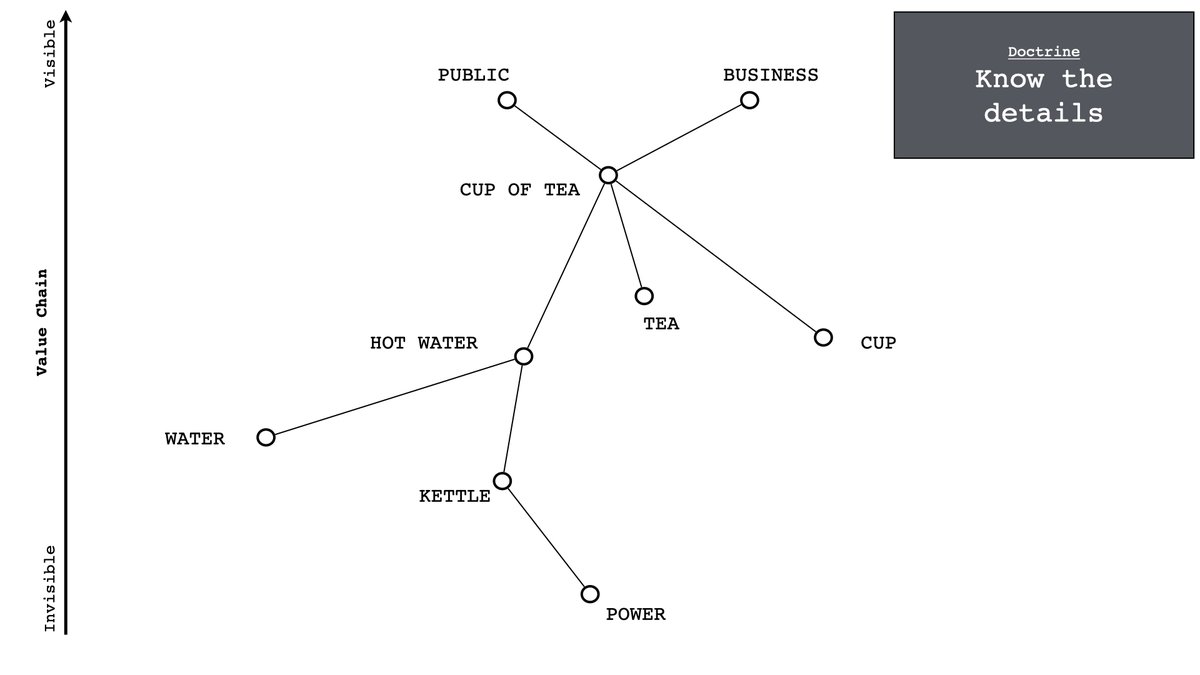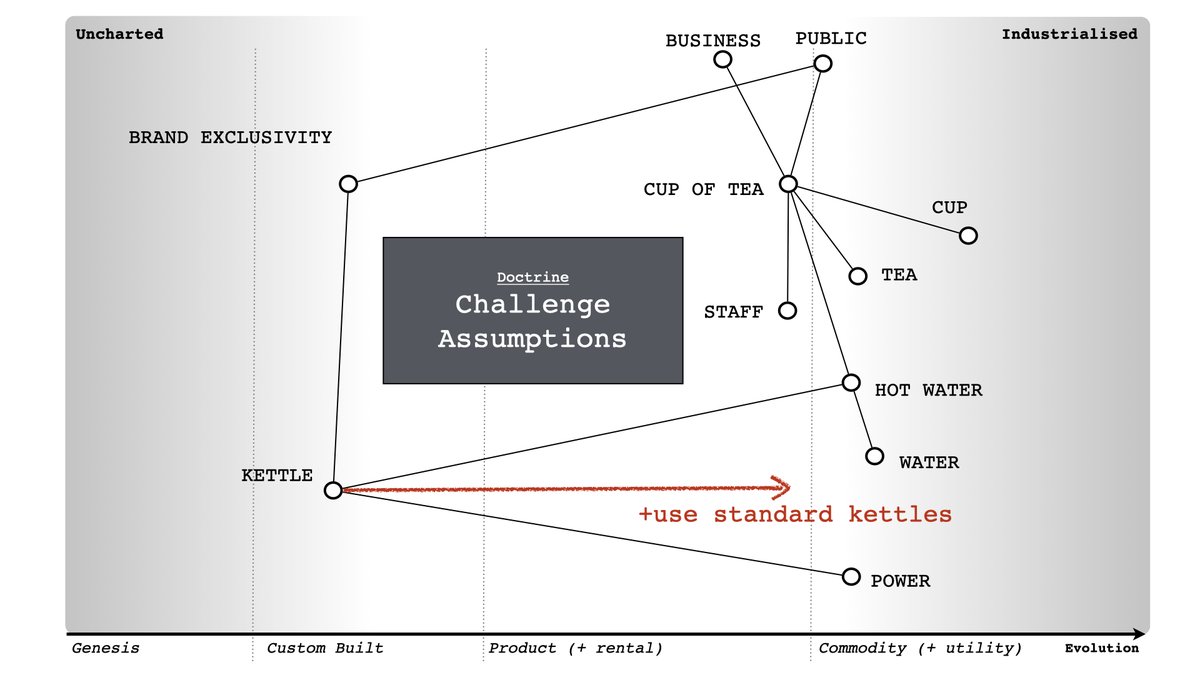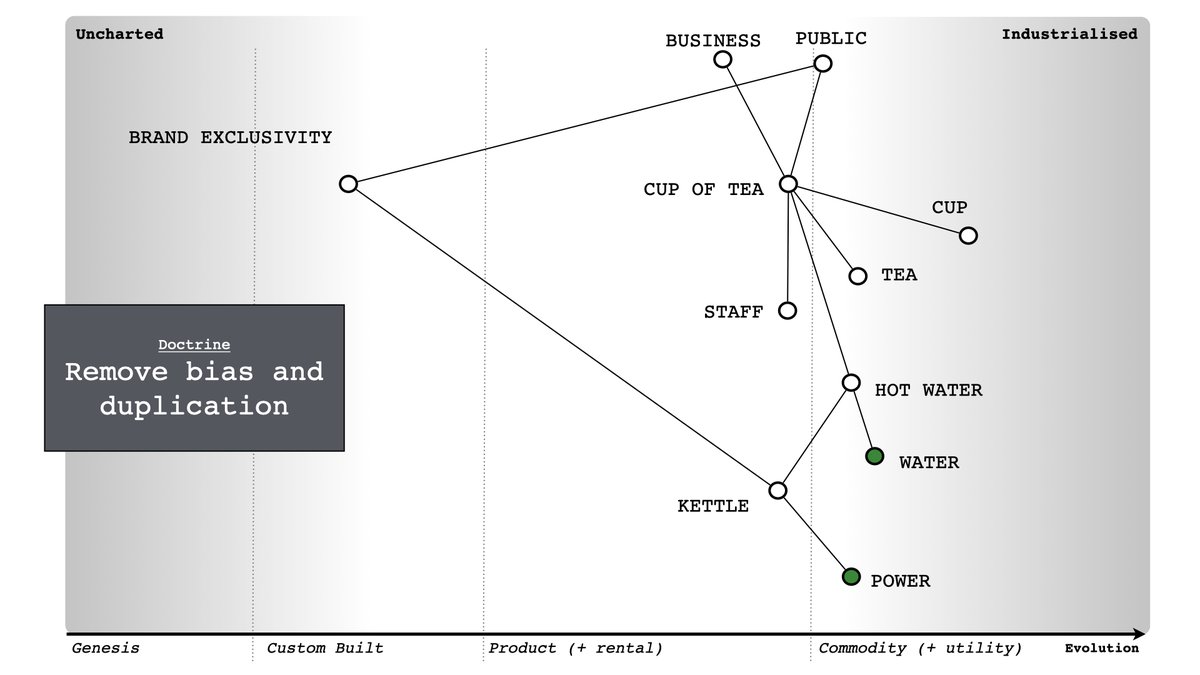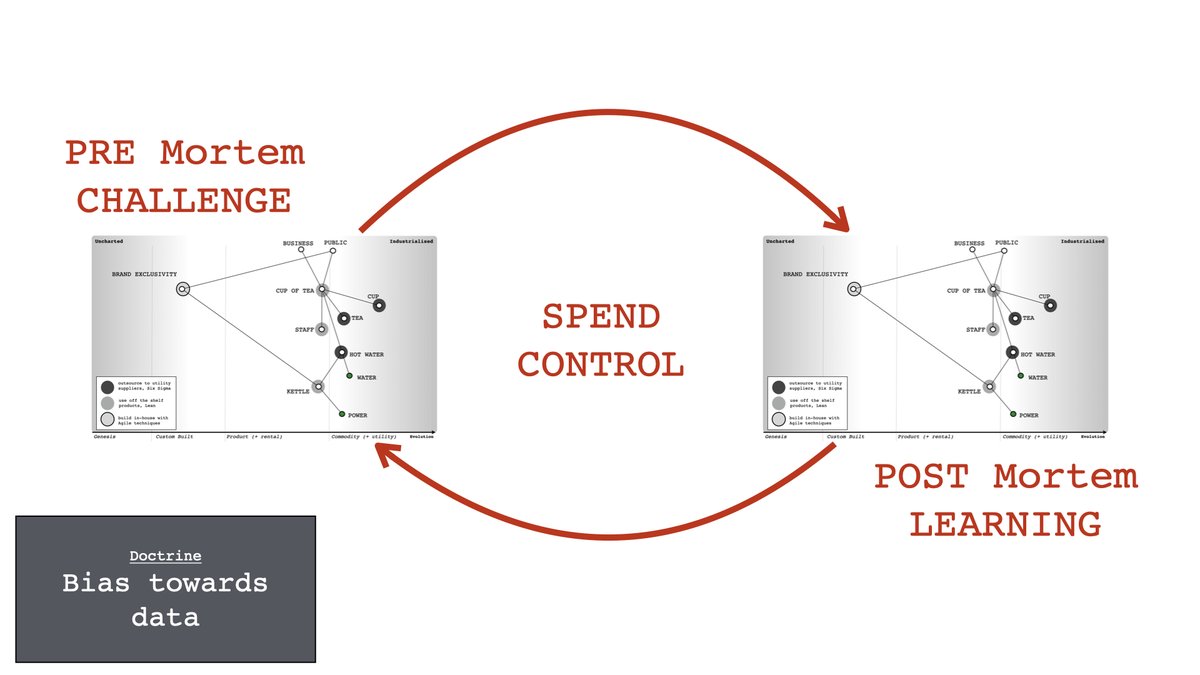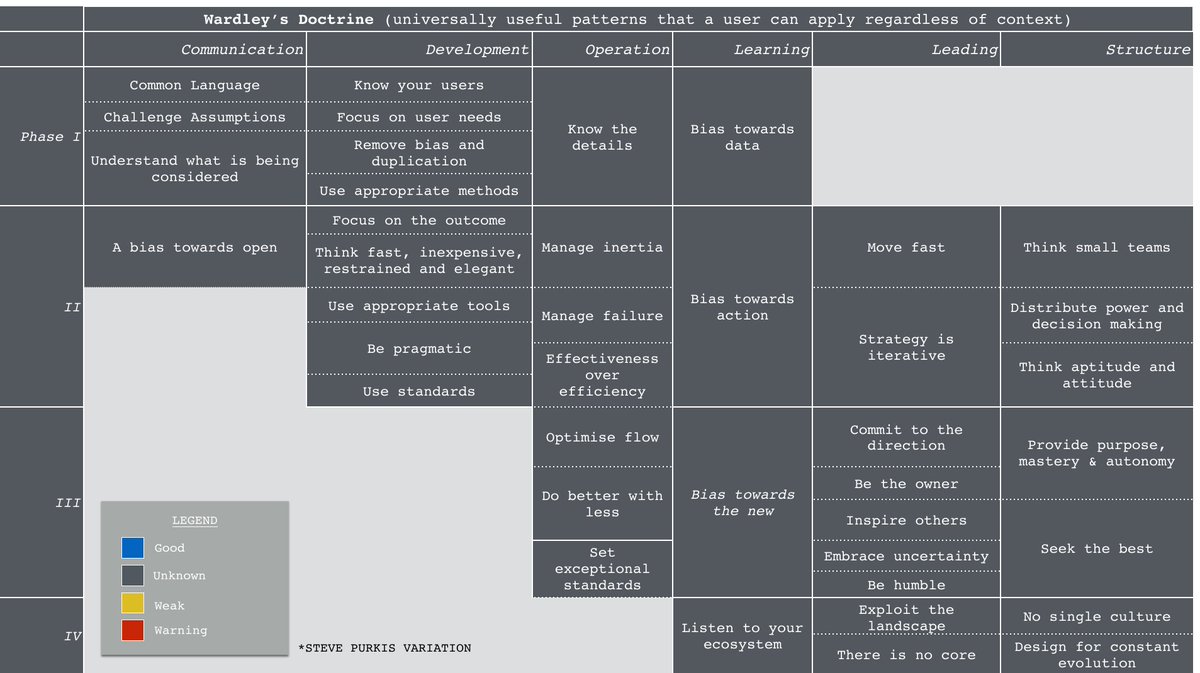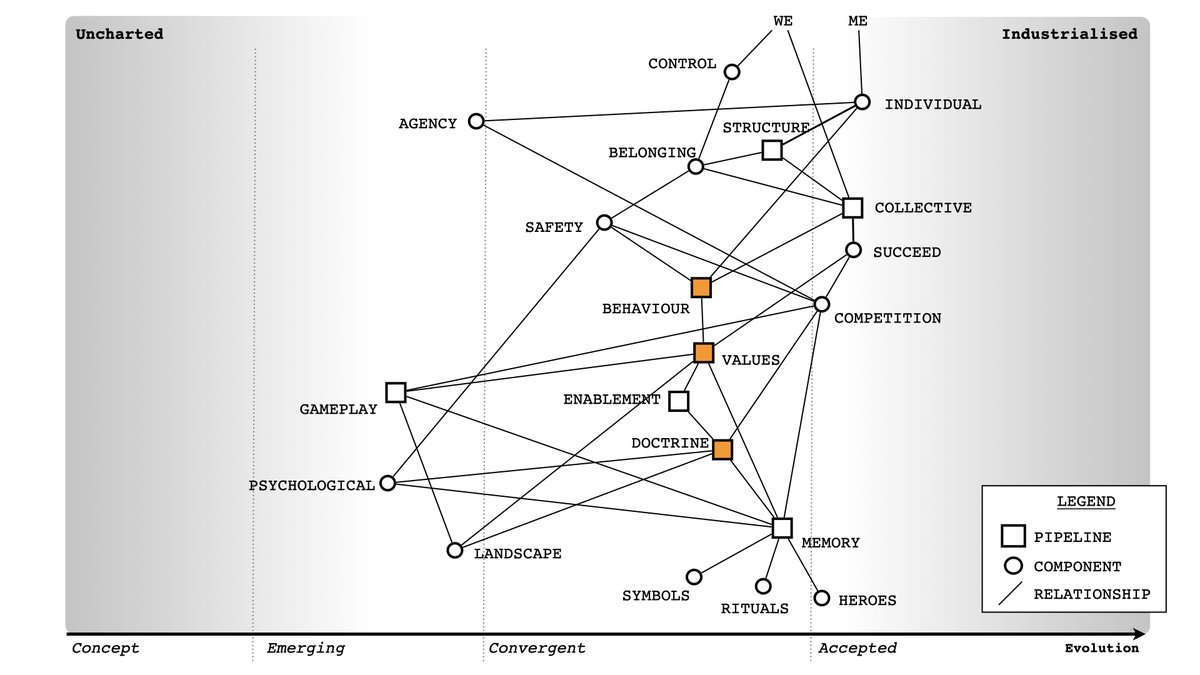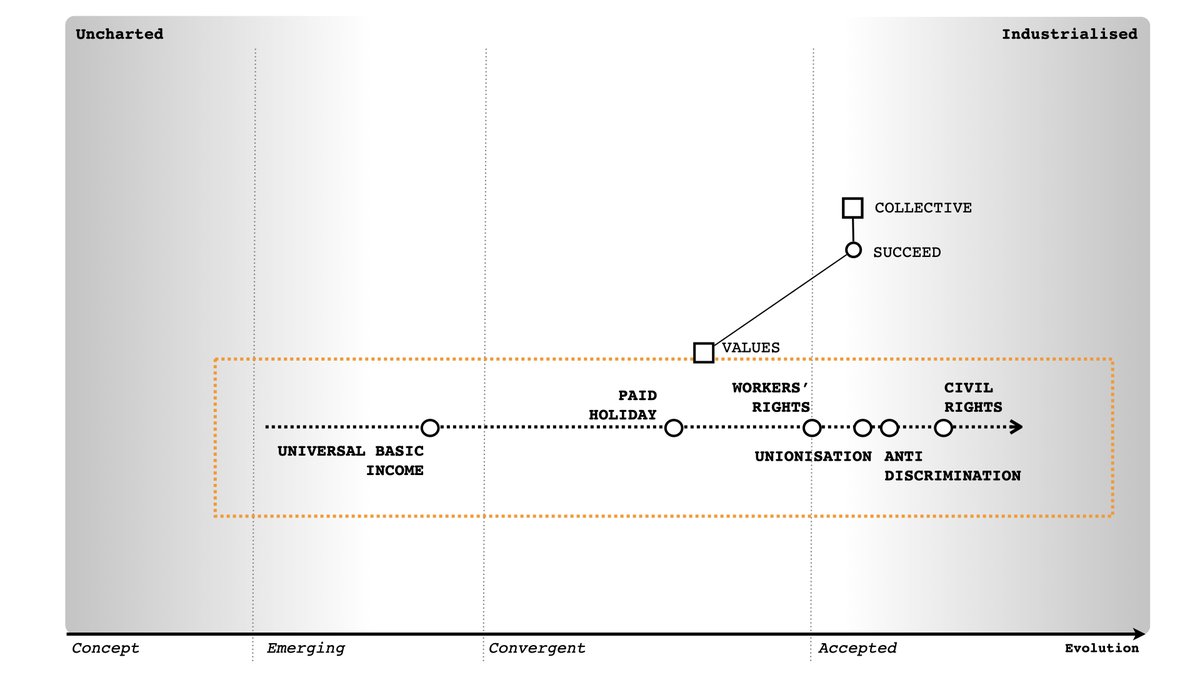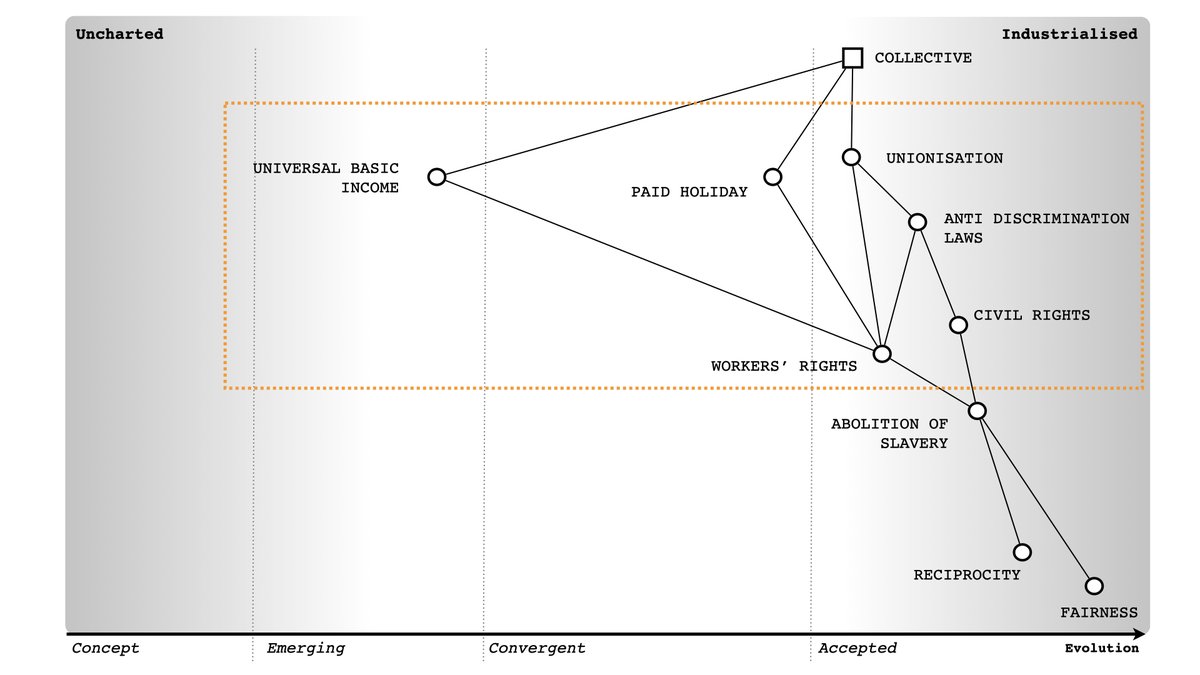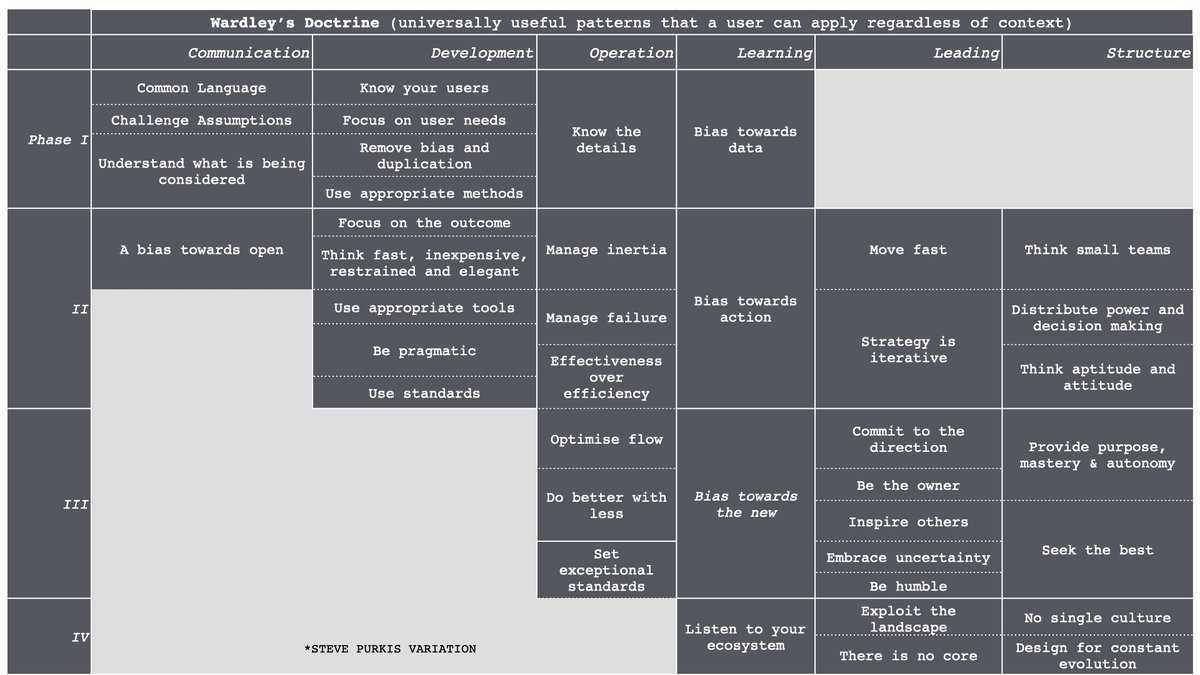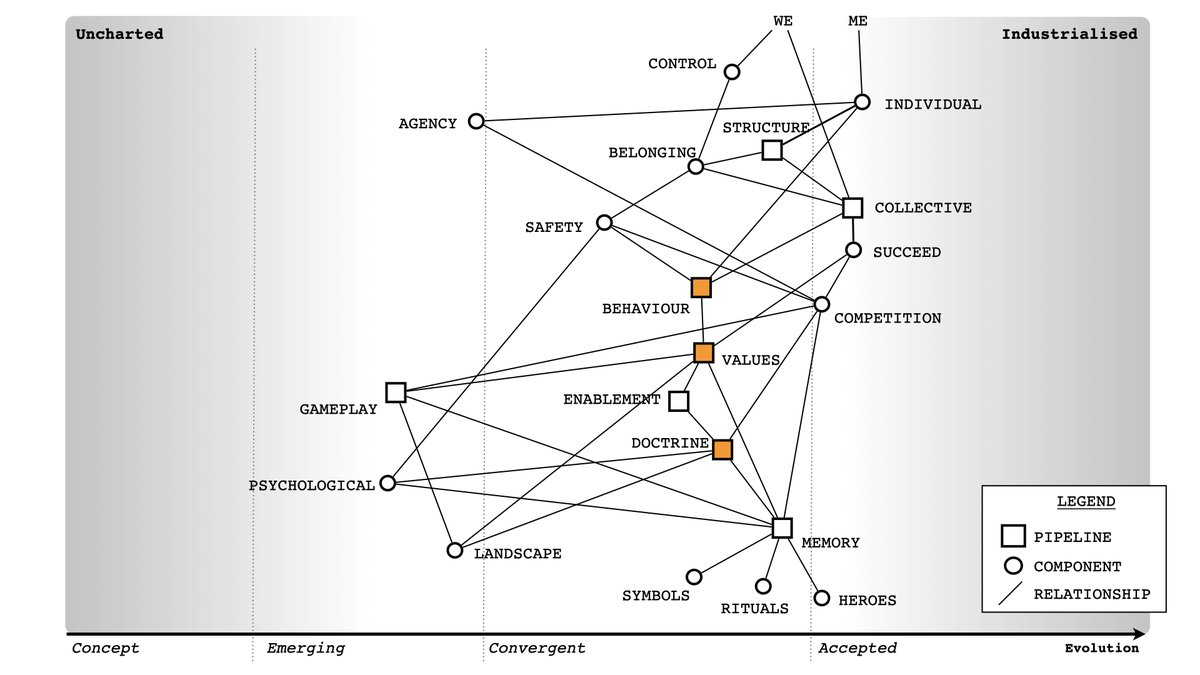X : Cloud is more than technology, it's about the business model.
Me : Yes. That has always been the case but more than that it's about the practices.
X : No, it used to be about technology.
Me : It wasn't 14 years ago, it isn't today but ...
Me : Yes. That has always been the case but more than that it's about the practices.
X : No, it used to be about technology.
Me : It wasn't 14 years ago, it isn't today but ...
... what's telling is that we need to tell people this. It's a bit like AI, it's not about the tech but the practices that it enables and yet some execs ask "Where's the best place to put some AI for ROI?" ... muddled thinking.
It very clear that people really don't understand the importance of practices (especially those universally useful ones or principles) or why it matters ... people do realise that Amazon doesn't wipe out industries with better tech, it wipes out industries with better practices.
i.e. you could swap over all the tech from Amazon to one of its less evolved competitors and still within a decade Amazon would be wiping them out.
I can only come to a conclusion that some business execs WANT it to be technology i.e. "we would be Amazon if we had their tech" is a nice way of saying "It's the engineers fault not ours that we're in trouble".
No, it's your fault. You really are crap at "business".
No, it's your fault. You really are crap at "business".
X : It's all about unfair advantages.
Me : Amazon started off as one bloke with a sling at the bottom of the hill against vast armies in fortified positions with tanks. Stop making excuses or you'll have kittens if you ever look at China. The level of gameplay is way beyond that.
Me : Amazon started off as one bloke with a sling at the bottom of the hill against vast armies in fortified positions with tanks. Stop making excuses or you'll have kittens if you ever look at China. The level of gameplay is way beyond that.
... just have a look at a company like Haier. If you're going to continue to cover up your own failings by blaming engineers and saying "if only we had their tech" or how "it's beyond tech now" then you will not stand a chance. Do your company a favour and retire.
X : This is why culture matters so much. Honesty, integrity, trust, humility, willingness to ...
Me : Hold your horses. Let us start with doctrine, that list of principles (i.e. universally useful practices) ...
Me : Hold your horses. Let us start with doctrine, that list of principles (i.e. universally useful practices) ...
First, we have to realise that not all companies and industries are the same. Some industries have poor doctrine but that's ok, if everyone in your industry is crap at this stuff then no-one gets any advantage ...
Now, let us take two of the doctrine - "focus on user needs" and "be humble". Understand that the doctrine is interconnected. We can map this and "be humble" is far above "focus on user needs" which is more foundational ...
... you also have values (things we believe), which are a pipeline of constantly appearing and evolving values ...
... so, if your doctrine is rubbish (and lets suppose everyone's is) then values (i.e. integrity) and behaviours (i.e. trust) differentiate us but ...
... somebody with poor values (i.e. no integrity) and poor behaviour (i.e. no trust) can still come into our industry and wipe us out through better doctrine (i.e. focus on user needs) ... see Facebook.
Equally, someone with better doctrine (i.e. be humble) has an advantage over those with poor doctrine (i.e. lack humility) but they in turn have advantage over those with even worse doctrine (i.e. no focus on user needs) ...
... if the doctrine (universal principles of operating) between competitors is roughly equivalent then values (things we do) and behaviours (actions taken to support values) become paramount.
So be careful mixing up your doctrine with your behaviours with your values. They are all part of "culture" but culture contains many evolving components (many of which are maps in themselves) ...
... in general, most conversations that I get exposed to on culture are little more than hand waving and wishful thinking. It's as bad as digital sovereignty - ruled by story tellers with next to no situational awareness.
X : Where does that doctrine come from?
Me : From maps themselves.
X : Explain?
Me : Take a tea shop. The first thing you need to know is ... your users.
Me : From maps themselves.
X : Explain?
Me : Take a tea shop. The first thing you need to know is ... your users.
But more than this, you need to understand what is being considered as there are many ways to treat the same thing ...
Once you have this, you now have a mechanism by which multiple people can communicate over the space adding missing components ...
... now you can communicate, you can start to effectively challenge what you're doing (without the usual politics of stories and story telling) ...
... with more maps you can start to remove duplication and bias i.e. you don't need to rebuild something that already exists ...
Now, if you're canny, then you'll use maps pre and post mortem as a mechanism of learning i.e. challenge what we're doing before we do it and question after we've done it ...
All of this doctrine build upon each other, I've just grouped it into phases for ease of implementation ...
Doctrine is just one component of the culture map, many of the other components i.e. behaviours, values are also complicated maps often tied to the landsccape (context specific)
Culture is the lot of it, the entire map. This is not a trivial nor an easy subject. There is a reason why anthropologists can't agree on a definition of culture after 100 years of effort.
X : Are you sure your culture map is right?
Me : I can guarantee that it is wrong. All maps are both imperfect (nature of being a map) and wrong (nature of being a model). The real question is whether they are useful or not. And, if so, can a better map be made.
Me : I can guarantee that it is wrong. All maps are both imperfect (nature of being a map) and wrong (nature of being a model). The real question is whether they are useful or not. And, if so, can a better map be made.
X : What is a pipeline?
Me : A simplified representation of a map highlighting how some components are continuously evolving ...
Me : A simplified representation of a map highlighting how some components are continuously evolving ...
... but more subtly, it also represents a logical OR rather than AND i.e. our values -> (A v B v C v D) rather than Succeed -> Values ^ Competition
X : I thought maps were about technology?
Me : They started in business, spread in Gov and Technology industries and they now exist in many spaces from the nation state to the individual, from reducing global poverty to combating human trafficking.
Me : They started in business, spread in Gov and Technology industries and they now exist in many spaces from the nation state to the individual, from reducing global poverty to combating human trafficking.
... the "more about technology" line is business code for "stop pointing out that I don't know what I'm talking about". It's why people try to co-opt but make different technology terms i.e. ecosystem becomes "business" ecosystem vs "That technology ecosystem you talk about".
The business vs technology line is an artificial construct mainly to make people who know very little feel justified by what little they do know. The ultimate expression is to co-opt technology leaders (Bezos, Zuckerberg, Cook, Nadella) and describe them as "business" people.
In practice, there are just business people - some who do understand technology and many who don't. In the past we used to wear badges of ignorance, people were proud to say they didn't understand technology whilst trying to run technology companies. It was madness.
It was however part justified by notions that there were special "business skills" ... of course, given the world's largest companies are now run by engineers and some of the world's most powerful Governments (see China) then that really doesn't hold up any more.
But it also doesn't mean that engineering is the answer either. Diversity of thought is critical. But to appreciate that, we really need to demolish this tower of "business thinking".
X : Are you an engineer?
Me : No. I'm a biologist.
Me : No. I'm a biologist.
X : What perpetuates the "business thinking" as you call it?
Me : Who do you think?
X : Money?
Me : Money and power. Business schools and Management consultants. You'd get better training spending 6 months building a massive "corporation" on EVE online.
Me : Who do you think?
X : Money?
Me : Money and power. Business schools and Management consultants. You'd get better training spending 6 months building a massive "corporation" on EVE online.
... but then, you don't go to business school for the training. You go for the network and that's a whole other story of privilege, power and being part of that exclusive collective.
X : Examples of technology vs principles?
Me : My favourite?
X : OK
Me : Colonel Custer and the battle of Little Bighorn. All the technology advantage (gatling guns + rifles + cannons vs bows + arrows) but none of the principles i.e. situational awarness, communication etc.
Me : My favourite?
X : OK
Me : Colonel Custer and the battle of Little Bighorn. All the technology advantage (gatling guns + rifles + cannons vs bows + arrows) but none of the principles i.e. situational awarness, communication etc.
X : Can you define doctrine, principle and practice.
Me : Practice is how we do something. Practices are often context specific i.e. to an industry. Those which are universally useful are Principles. A collection of Principles is a Doctrine i.e. Wardley's Doctrine (my collection)
Me : Practice is how we do something. Practices are often context specific i.e. to an industry. Those which are universally useful are Principles. A collection of Principles is a Doctrine i.e. Wardley's Doctrine (my collection)
X : What about Freedom of Movement?
Me : Freedom of movement is a belief i.e. a value that we hold in specific collectives. However, we do need to seperate out operating principles (those universally useful practices) vs principles of behaviour (those practices based on belief).
Me : Freedom of movement is a belief i.e. a value that we hold in specific collectives. However, we do need to seperate out operating principles (those universally useful practices) vs principles of behaviour (those practices based on belief).
... when you look at an organisation, its "doctrine" is usually a mix of universally useful practices (one set of principles) and behaviours (practices based upon the beliefs of the collective).
X : Can you dig into this a bit more.
Me : Sure, we have to use examples ...
X : Can you dig into this a bit more.
Me : Sure, we have to use examples ...
... "Focus on user needs" is a practice (how we do something), it turns out to be universally useful (hence a principle) and it doesn't care what you believe. Collectives with polar opposite values can both "focus on user needs" to good effect ...
... "Trust" (in the general sense, though this is highly context specific) is a practice that is based upon certain things we value i.e. integrity. Not all collectives share this behaviour because not all collectives share that value ...
... there are only seven common values (i.e. beliefs) across all collectives that I'm aware of - bravery, respect for family, respect for law, reciprocity etc - see Oliver S. Curry. But those values may well manifest into different behaviours based upon context ...
... so, I'm not excluding the possibility, I simply lack data to describe universally useful behaviours (practices based upon belief).
Hence when I'm talking Principles, I'm talking those practices which I have some measure of confidence that they are universally useful ...
Hence when I'm talking Principles, I'm talking those practices which I have some measure of confidence that they are universally useful ...
... and none of them are based upon beliefs (i.e. values). They are simply effective ways of operating.
I try to show this on the map of culture, hence the seperation. Unfortunately, the language we have isn't well designed to cope with evolution. Classic examples are the misuse of "innovation" (i.e. everything is an innovation) or ...
... the different forms of disruption (one predictable, one not) which people can't distinguish between (hence Lapore vs Christensen) or ...
... my favourite being commodification (conversion of social to economic value) vs commoditisation (shift from imperfect to perfect competition) which are completely different words that people think are the same.
X : When you're talking Doctrine, you're talking a collection of universally useful operating principles?
Me : Yes. I don't have any Principles of Behaviour (i.e. universal practices that are based upon values / beliefs) because ... I haven't found any that are universal.
Me : Yes. I don't have any Principles of Behaviour (i.e. universal practices that are based upon values / beliefs) because ... I haven't found any that are universal.
X : Trust is a value, it's a principal.
Me : Hmmm. We value integrity ... well, in some collectives. Trust is what we give (the behaviour) to those that show integrity. There are, of course, many forms of trust and it's highly context specific i.e. it's a not a universal thing.
Me : Hmmm. We value integrity ... well, in some collectives. Trust is what we give (the behaviour) to those that show integrity. There are, of course, many forms of trust and it's highly context specific i.e. it's a not a universal thing.
... hence with Uber, did I trust it with my data - no. Did it have integrity ... rides of glory? ... no. Did it focus on user needs, to get me from A to B - yes.
I don't have to trust an organisation (a collective) or share common values with it for it to be successful.
I don't have to trust an organisation (a collective) or share common values with it for it to be successful.
X : But you trusted Uber would get you from A to B!
Me : It wasn't a question of trust, it was simply operating in its own self interest by focusing on the user need to get from A to B. I don't "trust" a pub to sell me beer, that's what they do out of self interest.
Me : It wasn't a question of trust, it was simply operating in its own self interest by focusing on the user need to get from A to B. I don't "trust" a pub to sell me beer, that's what they do out of self interest.
What Uber replaced was the person in taxi office co-oridnating drivers and communicating with passengers. They commoditised that person to an app by focusing on the needs of taxi drivers to drive and passengers to move.
X : Uber also doesn't own assets like cars.
Me : As far as I know, most taxi firms don't own assets like cars. Drivers own the cars or lease them. This is almost irrelevant to the discussion.
Me : As far as I know, most taxi firms don't own assets like cars. Drivers own the cars or lease them. This is almost irrelevant to the discussion.

 Read on Twitter
Read on Twitter
